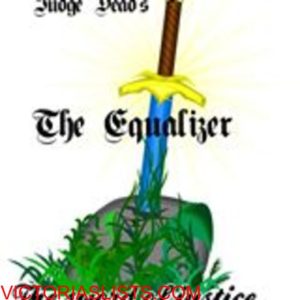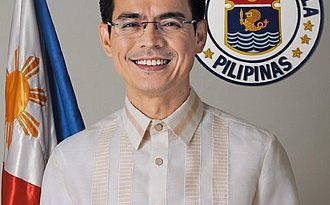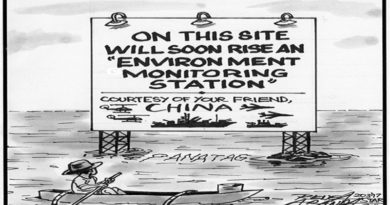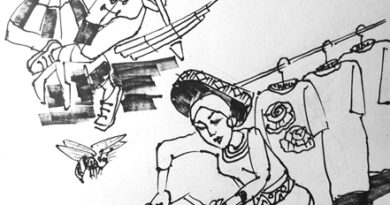OPINION-COLUMN: OPINION ON PAGE ONE: ‘Is there hope for moral leadership at this time ‘ – By Francisco S. Tatad
OPINION ON PAGE ONE
Cambridge, MA: How to save the political and social order from moral decay seems to be the overarching challenge of the day, and here in Cambridge one has a choice of listening to some moral philosopher at Harvard Kennedy School of Government on how moral leadership could create change from the ground up, or listening to some pundit on The New York Times on how moral rot threatens America—and by extension, the world. It helps to listen to both.
The moral rot in America
I came here precisely to join Prof. Chris Robichaud’s conference workshop on moral leadership for HKSG alumni from various parts of the world. Fewer than a hundred alumni responded to the invitation. On the day it got under way, opinion columnist Roger Cohen of the NYTimes wrote that, more than President Donald Trump’s “contempt for the multilateral order,” which he believes could be fixed, in time, “what eats at America, and so its place in the world, is moral rot: unrelenting blight that emanates from on high. When it comes to rottenness, Denmark is passé”—-(obviously a literary allusion to a line in Hamlet which says, “something is rotten in the state of Denmark.)
“Try the White House,” he said.
He cited the President’s latest booboo, when he alluded to some immigrants as “animals; they aren’t real people,” he said, and the White House communications officer Kelly Sadler dismissing the nationally revered war hero, Republican Sen. John McCaine, as a presidential possibility, because “he’s dying anyway.” The senator is known to be fighting cancer, but that has not diminished his vigor as a statesman. For the columnist, these quotes are the latest proofs of Trump’s descent into the sewer.
“A universe where morality ceases is the one Trump is most comfortable in,” wrote Cohen; “Trump’s Ministry of Truth is the new American normal. It is impossible to oversate the enormity of it.” The “Ministry of Truth” or Minitrue first appeared in George Orwell’s dystopian novel, Nineteen Eighty Four, to describe the Ministry of Propaganda, which specialized in “false news.” In saying the Ministry of Truth has become the new American normal, the columnist is saying Trump has institutionalized “false news” as an instrument of his presidency. Ironically, Trump accuses his media critics of propagating “false news.”
Europeans weigh in
The columnist quoted unnamed European diplomats who shared his evaluation of Trump. According to him, he asked a German diplomat what important issues Germany and the US were cooperating on, and he got a blank look in response. Not Iran, not trade, not climate change, not Russia, he said. The columnist reported he got a worried letter from a senior French diplomat who said Trump’s scuttling of the Iran nuclear deal showed a dangerous mix of unilateralism and isolationism which contributes to “the new world disorder, where there is no more American power willing or able—or both—to be the last-resort enforcer.” It is one way of saying that the trans-Atlantic alliance, which the US and Europe had built in war and in peace, has been severely weakened by Trump’s handling of world affairs.
But the more trenchant comments—as trenchant as Trump’s own comments—were related to morality and manners. The columnist quoted a senior European Union policy official named Federica Mogherini as saying “the screaming, shouting, insulting and bullying, systematically destroying and dismantling everything that is already in place is the mood of our time.” There was no specific mention of Trump, but there was no chance it could have referred to anybody else. “There is only one core task before everyone in Trump’s America: keeping the Republic, despite him,” Cohen concluded.
Trump returns the compliment
There are two sides to this debate. Where the mainstream American media seem to be unforgiving of Trump’s questionable policy decisions, lapses, his defenders in the social media, particularly on YouTube, are even more unforgiving of Trump’s critics on the most important moral issues such as the family and human life.
In Europe, the crisis appears different, but does not put the Europeans in a morally superior position. In his May 16 NYTimes column, Ross Douthat sees an increasing clash between liberalism and illiberalism, between freedom and authoritarianism. Increasingly, democratic values are threatened by ethnic chauvinism and would-be strongmen—by “Putin imitators” who want to use the democratic part of liberal democracy as a ladder up to power in order to burn away the liberal part, the columnist writes.
This does not make life easier for would-be moral leaders.
In Robichaud’s workshop, the Trump administration was not mentioned as the subject or intended beneficiary of the discussions. But the US participants I spoke to were convinced America’s moral standing in the world has declined, and they would like to see it restored. If Trump does not recover, they would like to see his successor regain America’s moral standing in the world.
As a foreigner, I had my own interest. Under President Rodrigo Duterte, we suffer the same moral affliction as the US under Trump. So I wanted to see if, based on the framework offered by the HKSG workshop, someone with DU30’s moral imperfections and infirmities could still be helped to become a noteworthy moral leader.
This may appear to fall outside my job description as a presidential critic, but to be quite candid, I would be much happier if DU30 would try to transform himself so that my friends who support him will no longer have to falsify the facts and the issues and pervert their reasoning just to be able to praise the President.
DU30’s chances as moral leader
I can probably say I came out of the encounter convinced that for all his warts and blemishes, DU30 still stands a chance of becoming a moral leader, if he would but exert the necessary effort to learn what he must learn. He must go through the learning curve. Every society is founded on human values, which either grow or dim with time; a moral leader should be able to lead his people in defending those values which best define man as man. It is for this end that he must use his authority and power, which are not one and same thing.
Authority flows from a transcendental source; it alone can legitimate the exercise of political power. One cannot confer any authority upon oneself; neither can one arrogate power upon oneself which no rightful authority has conferred. One risks being accused of exercising what Stanley Baldwin once called “power without authority, the prerogative of the harlots throughout the ages.” This is what is at issue in the decision of the eight or nine justices of the Supreme Court to declare the appointment of Chief Justice Maria Lourdes Sereno null and void from the very beginning.
More than DU30’s famous use of invectives on foreign dignitaries, more than the stories about his extrajudicial drug killings, the judicial lynching of the Supreme Court Chief Justice upon his directive appears to constitute the biggest obstacle to DU30’s becoming a moral leader. The story of this lynching appears to have really gone around the world, for some of the more persistent questions I got about this on this trip were from Africans who could not understand how a Christian nation that claims to be the oldest democracy in Asia ended with this abomination.
In Africa, there are tribal wars that end up in genocide, said one of them. There are coups d’etat where the military replace the courts and the politicians. But there has never been anything like this, where the highest member of the highest court is removed by their members, in violation of the Constitution, and the act is proclaimed as constitutional. /
Manila Times / ON All photographs, news, editorials, opinions, information, data, others have been taken from the Internet ..aseanews.net | [email protected] |.For comments, Email to :D’Equalizer | [email protected] | Contributor.










